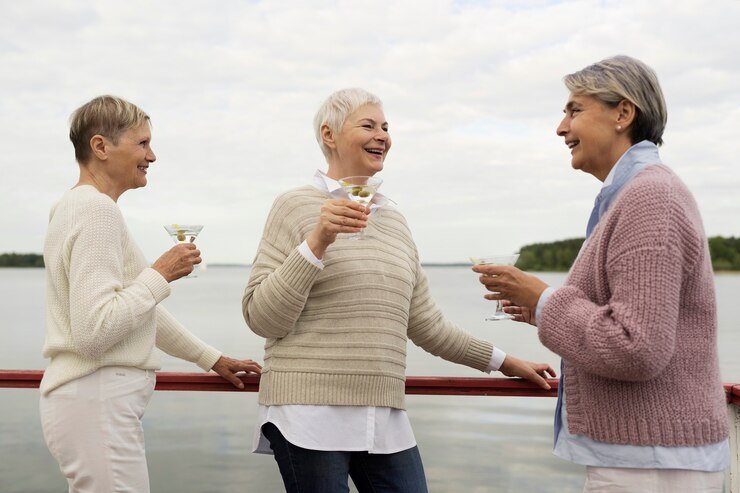Modern caregiving practices have evolved significantly over the years, reflecting changes in societal norms, technological advancements, and a growing emphasis on person-centered care. Caregiving extends to a wide range of situations, from caring for children and the elderly to supporting individuals with disabilities or chronic illnesses. Here, we will delve deeper into modern caregiving practices, exploring various aspects of this dynamic field.
Person-Centered Care
One of the most significant shifts in modern caregiving is the move towards person-centered care. This approach prioritizes the individual’s preferences, needs, and values. Caregivers work collaboratively with care recipients to develop personalized care plans that focus on their unique requirements and goals. The aim is to foster a sense of dignity and autonomy in those receiving care, ensuring that their voices are heard and respected.
Technology Integration
Technology has become an integral part of modern caregiving. Caregivers use various tools and applications to enhance the quality and efficiency of care. For instance, medication reminders and monitoring devices help ensure that care recipients receive their treatments and stay safe. Telehealth consultations have gained prominence, especially in remote or underserved areas, making healthcare more accessible. Additionally, assistive technologies, such as mobility aids and communication devices, improve the quality of life for individuals with disabilities.
Respite Care
Recognizing the emotional and physical toll that caregiving can take on family members and professional caregivers, respite care programs have become increasingly available. These programs offer temporary relief and support, allowing caregivers to take a break and recharge, thereby reducing the risk of burnout.
Holistic Care
Modern caregiving goes beyond addressing just the physical needs of individuals. Caregivers consider the mental, emotional, and social well-being of those in their care. This approach may involve mental health support, counseling, and organizing social activities to combat isolation and promote a sense of belonging.
Inclusive and Diverse Care
Cultural sensitivity and inclusivity are vital components of modern caregiving. Caregivers are trained to understand and respect the unique cultural, religious, and lifestyle factors that influence care recipients’ preferences and needs. This ensures that care is provided in a way that aligns with the individual’s cultural background and values.
Collaborative Care
Modern caregiving often involves collaboration among various professionals. This includes doctors, nurses, therapists, social workers, and others who work together to provide comprehensive care. The interdisciplinary approach ensures that the diverse needs of the care recipient are met effectively.
Advanced Training
Caregivers are increasingly receiving specialized training to meet the specific needs of their clients. This is particularly important when dealing with complex medical conditions, mental health issues, or disabilities. Specialized training equips caregivers with the knowledge and skills necessary to provide high-quality care.
Remote Monitoring
The integration of technology has enabled caregivers to remotely monitor the health and safety of individuals. Devices and sensors can provide real-time information on vital signs and activities, serving as early warning systems for potential health issues. Remote monitoring enhances the safety and well-being of those receiving care while providing peace of mind to caregivers and family members.
Support Groups
Caregivers and care recipients both benefit from support groups and online communities. These forums offer emotional support, information sharing, and a sense of belonging. Caregivers can connect with others who are facing similar challenges, providing an opportunity to share experiences and advice.
Legal and Financial Planning
Modern caregiving practices also extend to assisting care recipients in planning for their legal and financial matters. Caregivers may help with the creation of living wills, powers of attorney, and navigating healthcare costs and insurance. This ensures that care recipients are well-prepared for the future and have their affairs in order.
Aging in Place
The preference to age in place, or remain in one’s own home and community as one grows older, is a significant trend in modern caregiving. Caregivers work to support elderly individuals in staying in familiar surroundings as long as possible. This may involve home modifications to enhance accessibility, transportation services, and in-home care to meet their specific needs.
End-of-Life Care
Modern caregiving practices include comprehensive end-of-life care options, such as hospice and palliative care. These services prioritize the comfort, dignity, and emotional well-being of individuals with life-limiting illnesses. Caregivers in this context focus on pain management, emotional support, and ensuring a peaceful and meaningful transition.
Environmental Consciousness
Caregivers are increasingly mindful of the environmental impact of their caregiving practices. Sustainable and eco-friendly approaches are becoming more prevalent, from using energy-efficient appliances to reducing waste in caregiving routines. This environmentally conscious approach aligns with broader sustainability goals.
Self-Care for Caregivers
Caregiver well-being is a critical consideration in modern caregiving. Recognizing the physical and emotional toll that caregiving can take, caregivers are encouraged to practice self-care. This includes taking breaks, seeking support from their own social networks or professional counseling, and prioritizing their mental and physical health.
Open Communication
Effective communication is essential in modern caregiving. Caregivers work to maintain open lines of communication with care recipients and their families. This ensures that everyone involved is well-informed and engaged in the care process. Communication helps build trust and can lead to more effective care outcomes.
Conclusion
Modern caregiving practices have adapted to meet the changing needs and expectations of those receiving care. These practices emphasize individuality, technology integration, holistic care, and inclusivity, all while providing support and resources for caregivers. As caregiving continues to evolve, it remains crucial to stay informed about the latest trends and approaches in the field, as they will continue to shape the future of caregiving.




